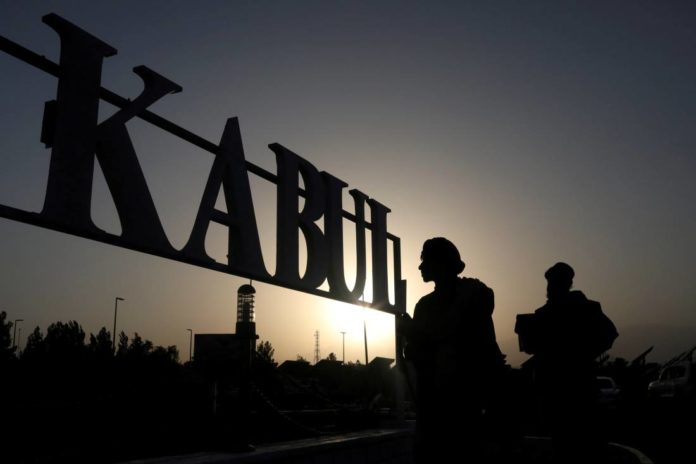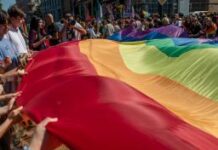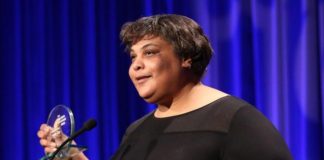
The Taliban seized power in Afghanistan more than 100 days ago, following the fall of the capital Kabul on August 15… But concern is growing for LGBT+ Afghans, some of whom are on the run fearing death.
(Please note language in paragraph 11 that may be offensive to some readers).
The Taliban seized power in Afghanistan more than 100 days ago, following the fall of the capital Kabul on August 15.
The militant Islamist group have promised a softer brand of rule than the radical form of sharia law they enforced from 1996 until 2001 when they were ousted by U.S.-led forces.
But concern is growing for LGBT+ Afghans, some of whom are on the run fearing death.
Even before the Taliban takeover, LGBT+ people said it was too dangerous to live openly in Afghanistan.
But under the Taliban’s extreme interpretation of Islam, LGBT+ Afghans say they could be punished with death, especially if international attention fades.
One gay man, whose name and age we are withholding for his own safety, spoke with the Thomson Reuters Foundation about how he escaped being lynched by the Taliban in a Kabul marketplace before fleeing across the border into neighbouring Pakistan.
Here he tells his story.
It was 10 o’clock in the morning and I had left the house for the first time since the government collapsed and the Taliban had taken power.
I was walking away from a food store when I turned and suddenly saw two Taliban members. They were very scary with curly long hair, long beards and wearing traditional clothes.
They were just like the ones I had seen in the video clips online where they beheaded people.
When I saw them, my heart started beating harder and harder and I started panicking. But I told myself I must keep calm and try and move on.
But as I went past, trying to be as humble as I could, putting my head down and looking at the street, they shouted: “Hey you! Stop! You must stop!”
And then they asked me to get my phone out.
Now I was really frightened and I lost the ability to talk; I was already shivering.
I said I don’t have a cell phone. But then the Taliban started searching me and found it in my pocket. I completely lost all the courage I had carried for two weeks since the collapse of the government.
I was caught red handed as I knew I had gay material on the phone. I said I don’t use this cell phone and that I’d forgotten the password. But then he used my finger to open it.
He first went to my contacts and then started searching the gallery, and when he saw there were (gay-related) photos and videos he gave me a really strong slap across the face.
He said you must have been fucked many times and started using really abusive words.
At that time, the crowd started gathering. I’m very thankful that the crowd didn’t know what was going on. Because if they had known, I’m sure they would have joined hands and I wouldn’t have come out alive.
After beating me, one Taliban was trying to fend off the crowd while the other was dragging me away by my hair towards a police car.
He said, “We are going to hang you – so that you will be an example for others.”
That was very frightening for me to hear, but I said to myself, “I can’t let my life end here.”
You know when you feel death? When death comes, the brain starts working and you try to find options to survive.
So I just figured that I would try to pull my hair with as much power as I could no matter how painful it would be. I had to run from these two men.
I managed to get loose, but when the other one saw he got out his gun and fired in the air and then the other one also started firing. The crowd started to scatter and I ran into it as they fired.
I didn’t look back and ran as fast as I could until I reached a bus and got on and tried to get as far away as possible.
Even now, I feel so frightened looking back on the pain I experienced when they beat me. I still feel that pain and I have nightmares in which the incident repeats itself.
This is the not the first time I have experienced violence; I have also been a victim of family violence, particularly from my father and brothers.
My father is a very conservative and religious person. I am what I call a feminine gay and my behaviour is not in accordance with how society believes a man should behave. So my father always hated me for who I was.
Being gay is really hard for those whose have religious and conservative families. But even though I have been the victim of violence, I consider myself lucky because there are families who have killed their children just for being gay.
When I shared what had happened with Nemat Sadat (a gay Afghan-American novelist who has been helping LGBT+ people escape the country), he worked very hard to get me a passport and visa and then to cross the border into Pakistan.
But that itself was not easy.
I crossed the border in the back of an ambulance and changed my appearance to look like I was ill. It was terrifying, but I made it.
But even though I’ve escaped to Pakistan now, I don’t feel safe here. I have a limited stay and am afraid of being returned back. I also don’t have much resources.
I have no reason to be optimistic. It’s really very hard to go on.
We want to hear from you: what critical stories and perspectives are missing from our coverage of systemic racism around the world?
Your responses to our short survey will help shape our reporting.
You can submit your response anonymously. If you provide an email address, we may follow up with you for more information. Any information you share with us will remain strictly confidential and will be used only in accordance with our Privacy Statement.
Our Standards: The Thomson Reuters Trust Principles.








